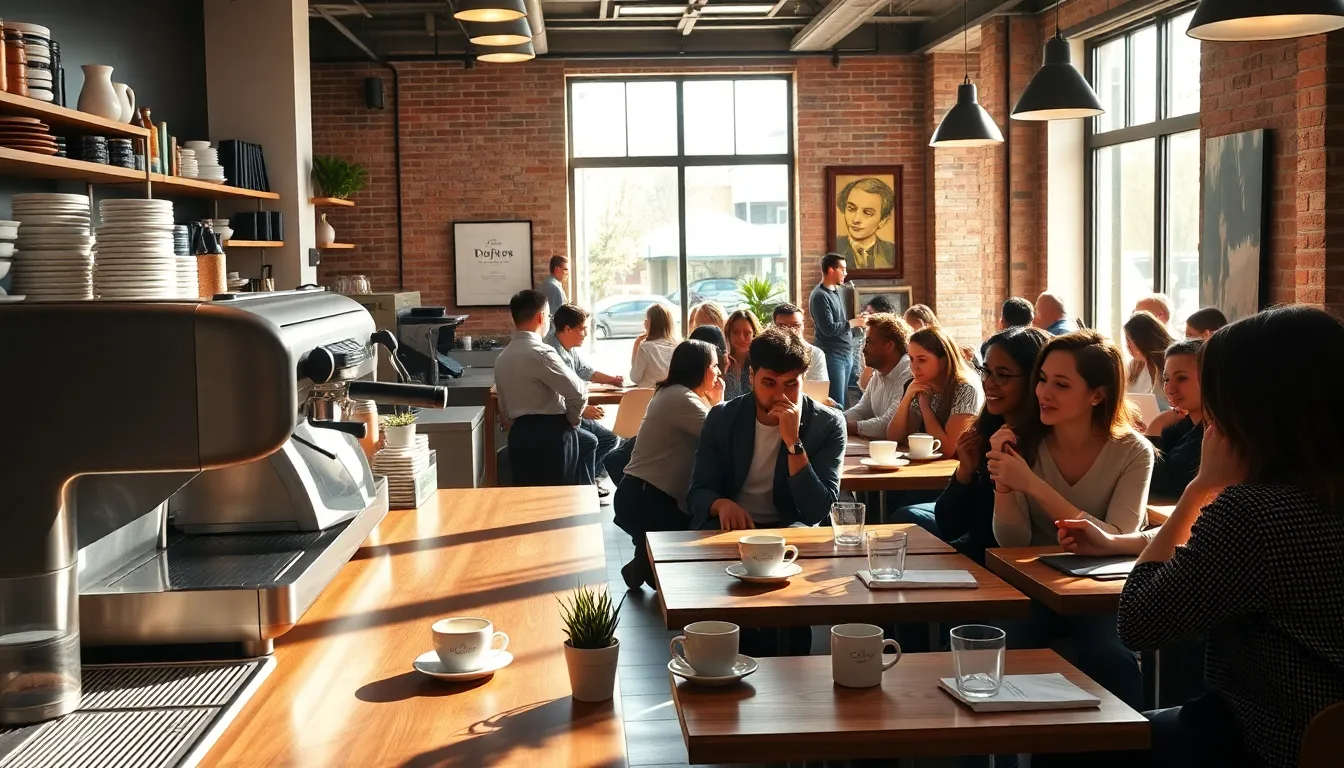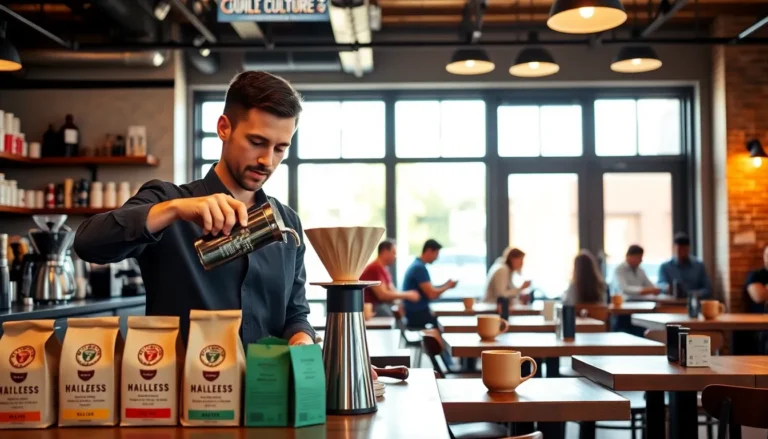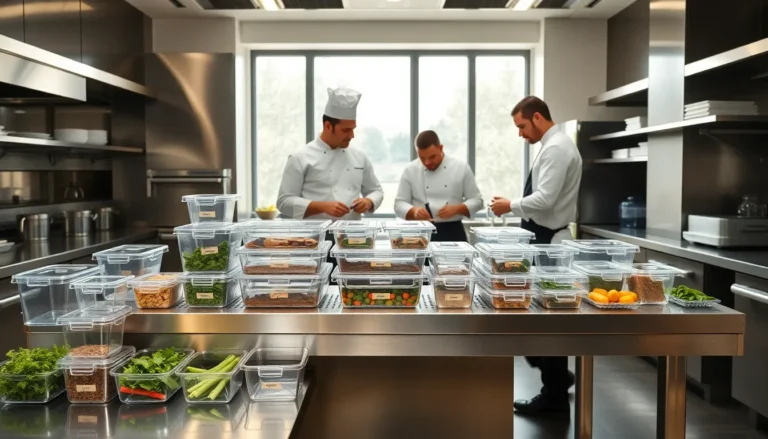Coffee isn’t just a drink: it’s a global ritual that kicks off mornings, sparks conversations, and even fuels revolutions. Imagine this: you’re in a cozy café in Paris, savoring a delicate espresso while pretending to be a sophisticated artist. Or perhaps you’re in a bustling street in Ethiopia, witnessing the joyous coffee ceremony that’s been cherished for centuries. With so many cultures adding their unique twist to this beloved bean, understanding coffee culture around the world can be an eye-opening journey. Let’s jump into the captivating history, diverse preparation methods, and the cultural significance of coffee – all while possibly making you crave a cup (or three).
Table of Contents
ToggleThe Origins Of Coffee: A Historical Overview

The story of coffee begins in the ancient coffee forests of Ethiopia. Legend has it that a goat herder named Kaldi first stumbled upon the energizing effects of the coffee bean in the 9th century. Those delightful little berries turned his goats into lively dancers, quite the sight. The word spread, and coffee eventually made its way to the Arabian Peninsula. By the 15th century, it was a hit in Yemen, where it was brewed in homes and enjoyed in coffeehouses, called qahveh khaneh.
These coffeehouses were buzzing centers of social activity, attracting poets, scholars, and pretty much anyone with a story to tell. Fast forward a few centuries, and coffee has traveled the globe, each region adding its own flair to the way it’s prepared and enjoyed. The journey of coffee, from humble beginnings in Ethiopia to becoming a global phenomenon, shows just how deeply rooted it is in cultures worldwide.
Regional Variations In Coffee Preparation
Coffee isn’t one-size-fits-all: each region has crafted its own preparation techniques that reflect local traditions and tastes.
In Italy, espresso reigns supreme. This concentrated coffee drink ignites a passion among locals, often consumed standing at the bar, no time to waste. Meanwhile, in Turkey, the coffee is boiled with sugar in a special pot called a cezve and served unfiltered, letting the rich grounds settle at the bottom of the cup. This brewing method is not just a drink but a way to connect with history.
Traveling over to Japan, you’ll find a meticulous approach to coffee preparation known as siphon brewing. This method uses a vacuum system that extracts flavors with precision, almost as if creating a science experiment.
Latin America loves its cafecito, a sweetened espresso often enjoyed with family. In places like Colombia, the coffee culture is so strong that they champion the importance of their beans through the famous phrase: “Cultivating Coffee for Life.”
These variations showcase how coffee preparation is a reflection of cultural identities, allowing individuals to appreciate every sip.
Cultural Significance Of Coffee In Different Societies
In various societies, coffee does more than quench thirst: it plays a central role in social rituals and customs. In Italy, sipping an espresso is a daily ritual that fosters connection among friends and family. It’s a delightful excuse to pause and chat about life, a true Italian pastime.
On the other hand, Ethiopian coffee ceremonies go far deeper. These gatherings can last for hours and involve roasting green coffee beans, grinding them, and brewing the coffee in front of guests. It’s an art form, a demonstration of hospitality, and a means to strengthen social bonds.
In Sweden, the concept of “fika” elevates coffee to new heights. This ritual combines coffee and pastries, serving as an opportunity to take a break and socialize. It’s not just about the drink: it’s about connecting, sharing, and savoring the moment.
Such cultural significance highlights how coffee fosters community, unity, and a sense of belonging across the globe, making it much more than just a daily habit.
Modern Trends In Global Coffee Culture
As society evolves, so does coffee culture. One of the booming trends in recent years is the rise of specialty coffee. This trend emphasizes high-quality beans, ethical sourcing, and attention to brewing methods. Coffee aficionados are increasingly seeking unique flavor profiles, similar to wine tasting but without the risk of a headache the next morning.
Besides, technology has infiltrated coffee culture, making it more accessible. Apps now allow coffee lovers to track their favorite brews from local cafés and have orders delivered to their door. This convenience has made it easier to enjoy quality coffee at home.
Also, sustainability is becoming an integral part of the modern coffee narrative. Many coffee producers and roasters are now heavily focused on environmentally friendly practices. From direct trade sourcing to biodegradable packaging, the coffee industry is increasingly conscious of its environmental footprint, encouraging consumers to make mindful choices.
Sustainable Practices And The Future Of Coffee
The future of coffee, like many agricultural products, relies on sustainable practices. Climate change poses significant challenges to coffee production, affecting yields and quality. But, innovators in the industry are stepping up.
Organizations and small farmers are adopting techniques such as agroforestry, which combines coffee cultivation with biodiversity and resource conservation. This approach not only preserves the environment but also enhances the resilience of coffee farms against climate fluctuations.
Also, consumers are increasingly paying attention to where their coffee comes from and how it’s produced. Coffee subscriptions promoting ethically sourced beans have surged in popularity. This shift towards transparency is forcing producers to meet higher ethical and environmental standards, paving the way for a more sustainable future.
By supporting sustainable coffee practices, consumers can feel good about their coffee choices and help protect this beloved beverage for generations to come.



